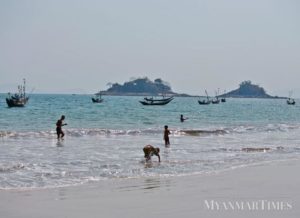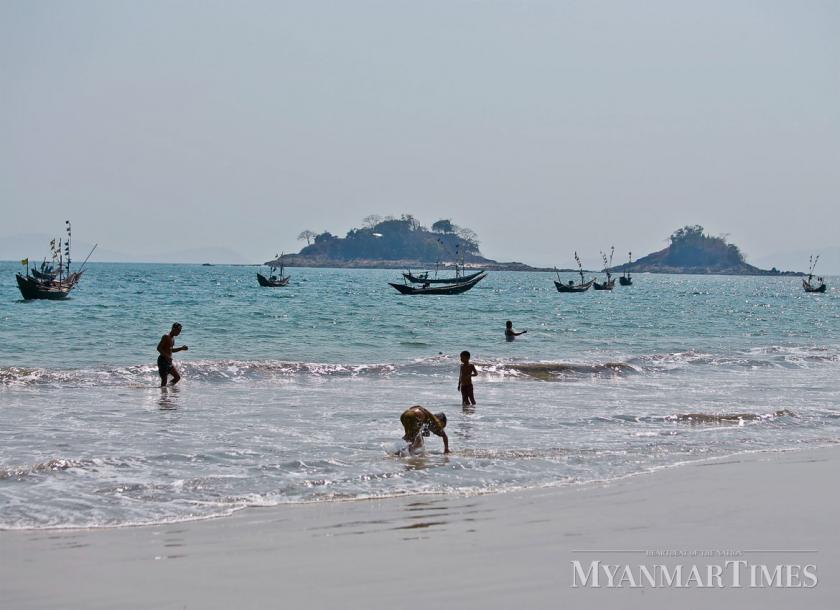
Myanmar’s Dawei special economic zone (SEZ) stands better chance with Japanese participation, officials say
25 Jul 2019
The governments of Myanmar, Japan and Thailand will be meeting over the troubled Dawei special economic zone (SEZ) project that has stalled since 2013 for lack of funding. Ministers will form a Joint Cooperation Committee to discuss how Japan can be more involved in developing the SEZ.
Located 20 kilometres north of Dawei, capital of Tanintharyi Region in Myanmar’s southeast coast bordering Thailand, the Dawei SEZ comprises 20,000 hectares of land and includes industrial as well as port facilities.
Italian-Thai Development pcl (ITD), a Thai construction firm, was to take the lead in the project with the initial memorandum of understanding between the Myanmar and Thai governments signed in 2008. After the project stalled in 2013, both governments remained committed to completing it, but efforts to woo other investors after sidelining ITD has been unsuccessful.
Ministry of Commerce assistant secretary U Khin Maung Lwin said Japan will participate fully in the project and that ministerial-level meeting will be held where matters concerning ITD’s role will also be discussed.
Japan is no stranger to developing SEZs in Myanmar, as Japanese companies were involved in the development of the Thilawa SEZ, south of Yangon. Myanmar officials in particular prefer the Japanese to take part due to their reputation for quality and trustworthiness while U Khin Maung Lwin said the government wanted the project to start as soon as possible.
“It would better with Japanese participation, and the Japanese government has also expressed interest,” he said. Both the Myanmar and Thai governments have tried to involve Japan before this but unsuccessfully. However, this time around the Japan International Cooperation Agency has carried out a survey of Tanintharyi Region’s coastal strip and will be releasing a report soon.
The SEZ, it is believed, will have positive effects for Dawei and its surrounding areas, with electricity supply and better transportation among them. The manufacturing industries will benefit, and so will tourism, fisheries and agriculture.
U Kyi Soe, a regional hluttaw member of parliament for Yephyu township said Myanmar migrant workers in Thailand can return and work in the Dawei SEZ because with Japanese involvement, there will also be Japanese factories setting up that can provide jobs.
Dawei SEZ management committee vice-chair U Myint San said critical infrastructure such as a two-way road and electricity has been left uncompleted and needed to be ready. “A loan will be obtained from the Thai government for the infrastructure, tenders will be called after that and we hope to construct the road by mid-2020,” he said.
Myanmar government officials said with the environmental impact and social impact assessments have been conducted, the land-lease will be sent to Thailand. “Myanmar’s part required to start the project will be done,” U Khin Maung Lwin said.
Initially, ITD was promised a 75-year lease for the SEZ. It is understood that ITD will then have to resume the project and will have to provide reasons if the company cannot continue.
Meanwhile, U Myint San said given the deadline of 2015 has passed for the completion of the project, the delay and implementation showed that ITD has not been following the contract. “There must be clear policy for this,” he added.
U Myint San said the initial forecast was for the project to be completed within eight years. Because construction of the basic infrastructure has not begun, the SEZ’s management committee has proposed that both the basic infrastructure and the first phase of the project be implemented simultaneously.
The Dawei SEZ’s troubles include land appropriation by the government that has created controversy as no compensation in cash or land has been given to the owners. Speculators who bought land also suffered when the project floundered. ITD is also mired in the compensation issues as local politicians alleged that there was no adequate compensation and now want the land compensation issues to be settled first before the project starts.
U Than Win, a local activist, said the assessments need to be done thoroughly and locals need to be informed.
“We welcome development but with better plans and after thorough studies,” he said. – Translated
Source: https://www.mmtimes.com/news/dawei-sez-stands-better-chance-japanese-participation-officials-say.html


